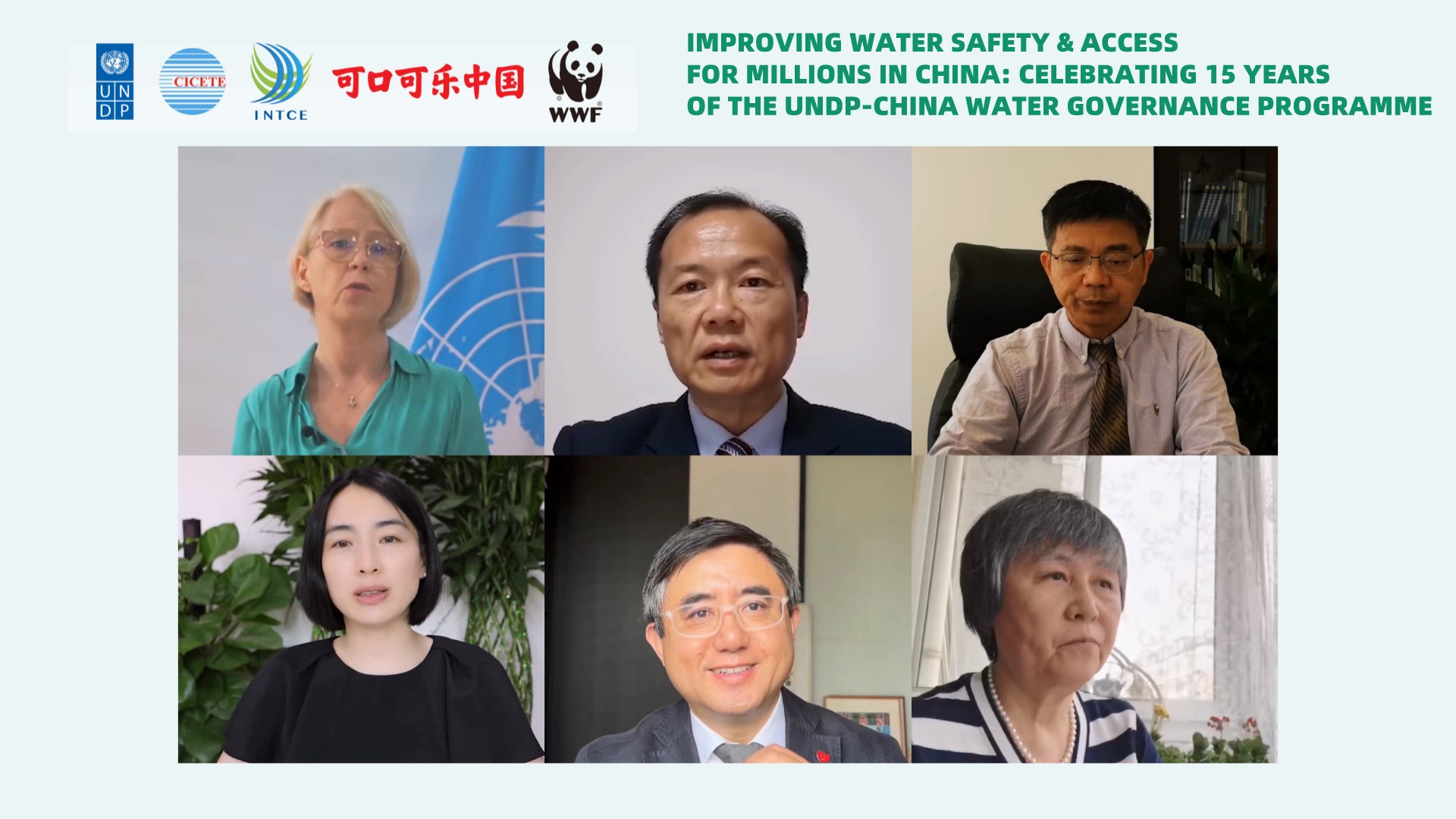Opening Remarks by Ms. Beate Trankmann on the 15th Anniversary of the UNDP-China Water Governance Programme
June 5, 2022

Ms Beate Trankmann, Resident Representative at UNDP China, delivers opening remarks at an event marking 15 years of the UNDP-China Water Governance Programme
尊敬的张翼副主任
尊敬的金海主任
尊敬的 张建弢副总裁 及 (卢伦燕首席代表)
大家上午好!
As the saying goes: 水是生命之源,万物之基, water is the source of all things, the foundation of life.
Without it, life on our blue planet would cease to exist. Not only does our individual health rely on safe and sufficient supplies of water, but also our ecosystems, agriculture and industry.
Throughout history, water crises have caused civilizations to collapse - and we may be heading in that direction, too.
The UN General Assembly declared 2018 to 2028 the Water Action Decade, raising the alarm over the increased pressure on global water resources and the heightened risk of droughts and floods.
Due to climate change, overuse and pollution, the availability of freshwater is shrinking. By 2025, 1.8 billion people globally will be affected by water scarcity.
China, which has one fifth of the world’s population but only 6% the world’s freshwater, has an even more urgent need to build a sustainable water future.
With 80% of China’s water concentrated in the south, water tables in the rapidly developing and arid north are seriously depleted.
The 110 million residents of Beijing, Tianijn and Hebei have an average of just 210 cubic metres of water available annually – far below the 500 cubic metres threshold for water scarcity.
As climate change raises temperatures, water stocks are being squeezed further.
Vital supplies of glacial meltwater are disappearing, rainfall is becoming more unreliable and drier summers more common.
Decades of rapid industrialization has also raised pollution levels, further constraining the availability of safe water.
The importance of water in securing environmental sustainability, poverty reduction and economic growth cannot be understated.
To meet the goals of the 2030 Agenda and in particular SDG 6: Clean Water & Sanitation, it is vital to change how we manage, use and value water.
Today on World Environment Day, it is therefore my pleasure to celebrate 15 years of UNDP’s engagement on the Water Governance Programme – an umbrella initiative that has benefitted tens of millions of people across China, 60% of them women and children.
This strategic partnership with the Ministry of Water Resources, CICETE and supported by Coca Cola China and the World Wild Fund for Nature in China, has evolved and expanded vastly from its initial focus on safe drinking water.
Across nearly 50 projects, in more than 20 provinces and covering 3 river basins we have produced marked improvements in sewage treatment, sustainable agriculture and river basin management, to name but a few.
The ‘Happy Farmhouse Initiative’ for example is currently treating 350,00 tons of water annually in areas lacking sewage pipelines and treatment infrastructure.
It is also helping farmers diversify into eco-tourism, making an important contribution to rural revitalization.
This zero-energy, low-maintenance and nature-based solution could be further scaled-up across China by partnering with local governments, the private sector and communities.
This, along with other lessons learned are being shared with other countries facing similar water challenges.
As well as delivering impact on the ground, we have also impacted local and national level policymaking. Most notably, the State Council’s Document Number One of 2014 now includes stormwater utilization as a best practice.
Today stormwater is no longer seen as just a destructive force, but also a productive resource. It is increasingly captured and recycled, expanding the water available for irrigation and reducing the dependency on limited freshwater supplies.
Achieving water-related goals can also help meet other SDGs. Managing wastewater better can help fight poverty by lowering the financial burden caused by water-borne diseases, while an integrated approach to water resource management can protect and restore ecosystems - key tools in tackling climate change.
To further sustain the development gains achieved thus far, we are working closely with all our partners to embed the aspirations and targets of SDG 6 Clean Water & Sanitation into village development plans and the ongoing rural revitalization campaign, as well as taking local knowledge and applying it for better water management.
In closing, I’d like to thank CICETE, INTCE, Coca-Cola China, WWF China and all our partners and implementing organizations for your support and contributions over the past 15 years.
There is still much more to be done. But with your continued trust and collaboration, I know we can achieve even more in the years ahead.
Together we can build a sustainable future for all - underpinned by safe and quality access to water.
Xie Xie!

 Locations
Locations







